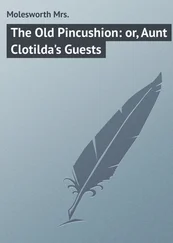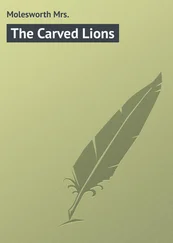Mrs. Molesworth - The Children of the Castle
Здесь есть возможность читать онлайн «Mrs. Molesworth - The Children of the Castle» — ознакомительный отрывок электронной книги совершенно бесплатно, а после прочтения отрывка купить полную версию. В некоторых случаях можно слушать аудио, скачать через торрент в формате fb2 и присутствует краткое содержание. Жанр: foreign_prose, на английском языке. Описание произведения, (предисловие) а так же отзывы посетителей доступны на портале библиотеки ЛибКат.
- Название:The Children of the Castle
- Автор:
- Жанр:
- Год:неизвестен
- ISBN:нет данных
- Рейтинг книги:3 / 5. Голосов: 1
-
Избранное:Добавить в избранное
- Отзывы:
-
Ваша оценка:
- 60
- 1
- 2
- 3
- 4
- 5
The Children of the Castle: краткое содержание, описание и аннотация
Предлагаем к чтению аннотацию, описание, краткое содержание или предисловие (зависит от того, что написал сам автор книги «The Children of the Castle»). Если вы не нашли необходимую информацию о книге — напишите в комментариях, мы постараемся отыскать её.
The Children of the Castle — читать онлайн ознакомительный отрывок
Ниже представлен текст книги, разбитый по страницам. Система сохранения места последней прочитанной страницы, позволяет с удобством читать онлайн бесплатно книгу «The Children of the Castle», без необходимости каждый раз заново искать на чём Вы остановились. Поставьте закладку, и сможете в любой момент перейти на страницу, на которой закончили чтение.
Интервал:
Закладка:
“A forget-me-not in the sky,” said the lady; “that is an odd idea. But you must tell me all your adventures when we are comfortably settled for the evening. Run in and take your things off quickly, for I don’t want you to catch cold, and the air, now the sun is set, is chilly. There is a splendid fire burning, and we shall have tea in my room as I promised you.”
“Oh, how nice,” said Ruby. “Come along, Mavis. I’m as hungry as a hawk.”
“And you’ll tell us stories after tea, cousin Hortensia, won’t you?” said Mavis; “at least you’ll tell us about your queer dream.”
“And about mamma’s going to court,” added Ruby, as she dashed upstairs. For by this time they were inside the house.
The part of the castle that the children and their cousin and the few servants in attendance on them occupied was really only a corner of it. A short flight of stairs led up to a small gallery running round a side-hall, and out of this gallery opened their sleeping-rooms and what had been their nursery and play-rooms. The school-room and Miss Hortensia’s own sitting-room were on the ground-floor. To get to any of the turrets was quite a long journey. They were approached by the great staircase which ascended from the large white and black tiled hall, dividing, after the first flight, into two branches, each of which led to passages from which other smaller stairs went upwards to the top of the house. The grandest rooms opened out of the tiled hall on the ground-floor, and out of the passages on the first floor. From this central part of the house the children’s corner was shut off by heavy swing doors seldom opened.
So when Ruby and Mavis visited the turrets they had to pass through these doors, and go some way along the passages, and then up one of the side stairs – up, up, up, the flights of steps getting steeper and narrower as they climbed, till at last they reached the door of the turret-chamber itself. Of these chambers there were two, one in each turret, east and west. The west was their favourite, partly because from it they saw the sunset, and partly because it was nearer their own rooms. They had been allowed to make a sort of private nest of it for themselves, and to play there on rainy days when they could not get out, and sometimes in very cold or snowy weather they had a fire there, which made the queer old room very cheery. There were three windows in each turret, and they were furnished in an odd, irregular way with all sorts of quaint old-fashioned furniture discarded from other parts of the castle. In former days these turret-rooms had sometimes been used as guest-chambers when the house was very full of visitors. For the large modern rooms and the hall I have spoken of had been added by the children’s grandfather – a very hospitable but extravagant man. And before he made these improvements there were often more guests than it was easy to find room for.
Ruby and Mavis were not long in taking off their out-door things and “tidying” themselves for their evening in Miss Hortensia’s pleasant little room. They made a pretty picture as they ran downstairs, their fair curls dancing on their shoulders, though if I were to describe to you how they were dressed, I am afraid you would think they must have been a very old-world looking little pair.
“Here we are, cousin Hortensia,” exclaimed Ruby as they came in, “and I do hope it’s nearly tea-time.”
“Not quite, my dear,” Miss Hortensia replied, glancing at a beautifully carved Swiss clock which stood on the mantelpiece; “the little trumpeter won’t tell us it’s six o’clock for half an hour yet – his dog has just barked twice.”
“Lazy things,” said Ruby, shrugging her shoulders, “I’d like to shake that old trumpeter sometimes.”
“And sometimes you’d like to pat him to sleep, wouldn’t you?” said Mavis. “When cousin Hortensia’s telling us stories, and he says it’s bed-time.”
Miss Hortensia looked at Mavis in some surprise, but she seemed very pleased too. It was not often Mavis spoke so brightly.
“Suppose you use up the half-hour in telling me stories,” said their cousin. “Mine will keep till after tea. What were all the adventures you met with?”
“Oh,” said Ruby, “it was too queer. Did you know, cousin, that there was a short way home from the sea-shore near old Adam’s cottage? Such a queer way;” and she went on to describe the path between the rocks.
Miss Hortensia looked very puzzled.
“Who showed it to you?” she said; for Ruby, in her helter-skelter way, had begun at the end of the story, without speaking of the boy Winfried, or explaining why they – or she – had been so curious about the old man whom the villagers called a wizard.
“It was the boy,” Mavis replied; “such a nice boy, cousin Hortensia, with funny bluey eyes – at least they’re sometimes blue.”
“Oh, Mavis, do not talk so sillily,” said Ruby; “his eyes aren’t a bit blue. She’s got blue on the brain, cousin, she really has. Seeing forget-me-nots in the sky too! I don’t think he was a particularly nice boy. He was rather cool. I’m sure we wouldn’t have done his grandfather any harm. Did you ever hear of him, cousin? Old Adam they call him;” and then she went on to give a rather more clear account of their walk, and all they had seen and heard.
Miss Hortensia listened attentively, and into her own eyes crept a dreamy, far-away, or rather long-ago look.
“It is odd,” she said; “I have a kind of fancy that I have heard of the old ‘solitary,’ for he must be almost a hermit, before. But somehow I don’t think it was here. I wonder how long he has lived here?”
“I don’t know,” said Ruby. “A good while, I should think. He was here when Joan was our nurse.”
“But that was only two years ago,” said Miss Hortensia, smiling. “If he had been here many years the people would not count him so much of a foreigner. And the boy you met – has he come to take care of the old man?”
“I suppose so. We didn’t ask him,” said Ruby carelessly. “He was really such a cool boy, ordering us not to go near the cottage indeed! I told him he might come up to get some soup or jelly for his grandfather,” she went on, with a toss of her head. “I said it, you know, just to put him in his place, and remind him whom he was speaking to.”
“I’m sure he didn’t mean to be rude,” said Mavis; “and, cousin, there really was something rather ‘fairy’ about him. Isn’t it very queer we never heard of that path before?”
“Yes,” Miss Hortensia replied. “Are you sure you didn’t both fall asleep on the shore and dream it all? Though, to be sure, it is rather too cold weather for you to have been overcome by drowsiness.”
“And we couldn’t both have dreamt the same thing if we had fallen asleep,” said Mavis, in her practical way. “It wasn’t like when you were a little girl and saw or dreamt – ”
“Don’t you begin telling the story if cousin Hortensia’s going to tell it herself,” interrupted Ruby. “I was just thinking I had forgotten it a good deal, and that it would seem fresh. But here’s tea at last – I am so glad.”
They were very merry and happy during the meal. Ruby was particularly pleased with herself, having a vague idea that she had behaved in a very grand and dignified way. Mavis’s eyes were very bright. The afternoon’s adventure had left on her a feeling of expecting something pleasant, that she could hardly put in words. And besides this, there was cousin Hortensia’s story to hear.
When the table was cleared, cousin Hortensia settled herself with her knitting in a low chair by the fire, and told the children to bring forward two little stools and seat themselves beside her. They had their knitting too, for this useful art had been taught them while they were so young that they could scarcely remember having learnt it. And the three pairs of needles made a soft click-click, which did not the least disturb their owners, so used were they to it. Rather did it seem a pleasant accompaniment to Miss Hortensia’s voice.
Читать дальшеИнтервал:
Закладка:
Похожие книги на «The Children of the Castle»
Представляем Вашему вниманию похожие книги на «The Children of the Castle» списком для выбора. Мы отобрали схожую по названию и смыслу литературу в надежде предоставить читателям больше вариантов отыскать новые, интересные, ещё непрочитанные произведения.
Обсуждение, отзывы о книге «The Children of the Castle» и просто собственные мнения читателей. Оставьте ваши комментарии, напишите, что Вы думаете о произведении, его смысле или главных героях. Укажите что конкретно понравилось, а что нет, и почему Вы так считаете.












